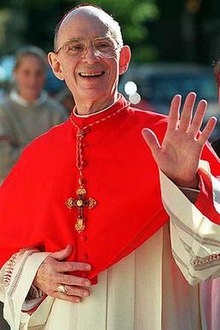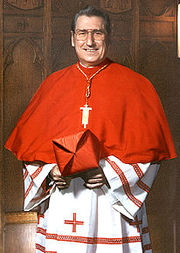When the U.S. Bishops Rejected the Language of “Objective Disorder”

Once a month, Bondings 2.0 staff will produce a post on Catholic LGBT news events from the past 38 years. We will comb through editions ofBondings 2.0’s predecessor: Bondings, New Ways Ministry’s newsletter in paper format. We began publishing Bondings in 1978. Unfortunately, because these newsletters are only archived in hard copies, we cannot link back to the primary sources in most cases.
November 1990: When the U.S. Bishops Rejected the Language of “Objective Disorder”
In mid-November 1990, the U.S. bishops issued a 185-page document entitled “Human Sexuality: A Catholic Perspective for Education and Lifelong Learning,” designed to set the course for Catholic education on sexual topics.
Davenport, Iowa’s Catholic Messenger newspaper carried an article on the document with the headline “Bishop asks: Are we credible on sex?” The article explained:
“Passage came only after debate which highlighted underlying questions about the Church’s credibility on artificial contraception, the proper pastoral approach to homosexual persons and long-standing controversies between educators and some Catholic parents over sex education in schools.”
On the topic of homosexuality, the debate centered around the use of the language “objective disorder,” a term which had only been recently coined in 1986 in the Vatican’s “Letter to the Bishops on the Pastoral Care of Homosexual Persons.”
The news article reported:
“. . .[A] spirited discussion on homosexuality was set off by an amendment proposed by Cardinal John O’Connor of New York and Bishop Raymond Lessard of Savannah, Ga. They asked for the addition of language from a 196 statement by the Vatican Congregation for the Doctrine of the Faith to state that a homosexual orientation is ‘objectively disordered.’ “
Not all bishops agreed with this proposed addition. The newspaper continued:
“Auxiliary Bishop Peter Rosazza of Hartford, Conn., objected, saying that phrase in the doctrinal congregation document ‘has caused untold damage in the homosexual community.’
“Archbishop John Quinn of San Francisco agreed but said the problem arises because ‘the statement is misunderstood.’
” ‘It is a philosophical statement; about tendencies and their objects, not a statement about persons, he said. ‘Every individual has disordered tendencies–to anger, to greed, the seven capital sins.’
“But because the Vatican statement ‘is read’ as meaning that the person with the tendency is disordered, it has presented a pastoral problem that ‘is difficult to overcome,’ he said.”
The newspaper account said that several other bishops joined in the discussion on both sides of the debate, but that ultimately they rejected the O’Connor-Lessard amendment to include “objective disorder” in the document.

Cardinal Joseph Bernardin
Instead, an alternative was proposed by Cardinal Joseph Bernardin of Chicago and Archbishops Quinn and Oscar Lipscomb of Mobile, AL. The article explained the new, accepted language:
“The approved amendment said that a homosexual ‘orientation in itself, because not freely chosen, is not sinful.’ It added a footnote quoting the doctrinal congregations’ reference to such a tendency as ‘objectively disordered’ and an explanation, drafted by Archbishop Quinn, of the meaning of that phrase in the Vatican document.”
The headline of the story, “Bishop asks: Are we credible on sex?” referred to another debate about the document’s language on contraception. Bishop Kenneth Untener of Saginaw, Michigan, questioned a passage which said that the logic on contraception teaching is “compelling.” He questioned the use of that term “knowing in fact that the logic is not compelling–not compelling to people in general, not compelling to many bishops.” He continued:
“When we speak that way, some would compare us to a dysfunctional family, unable to talk openly about a problem that everyone knows is there.”
Untener made a case for the sensus fildelium–the Church doctrine that says that the sense of the faithful about a particular teaching must be taken into account by the magistgerium. He reported that he asked his 23-person diocesan pastoral council to give their anonymous opinions on how the “Human Sexuality” document treated the topic of artificial contraception. The vote was 22 to 1 against the document’s content. Untener explained to the bishops:
“You must understand these are not dissidents. They are farmers and city people, men and women, middle-aged and older.
“I don’t know what would happen if you did the same with your pastoral council . . . your presbyterate (priests). I don’t know what would happen if we did it with each other right here. . . . “
Though speaking on artificial contraception, the same logic could easily apply to LGBT issues. Two years later, Bishop Untener would apply similar thinking to the issue of homosexuality when he was a speaker at New Ways Ministry’s Third National Symposium on Lesbian/Gay Issues, in Chicago.
At the 2014 and 2015 Vatican synods on family life, we saw that bishops from around the world were publicly questioning the use of the language of “objective disorder.” It’s worth remembering that the U.S. bishops had for a long time been reluctant to use that language in their own documents. They did not use it in their 1997 pastoral letter “Always Our Children” addressed to parents of lesbian/gay people, until the Vatican directed them to add the language in footnotes for a revised version one year later.
More importantly, it’s important to remember that bishops meeting can, have, and should be opportunities for debate and discussion. We have seen some of that spirit already some some the bishops appointed by Pope Francis, who have raised challenging questions at bishops’ meetings. Bishop Untener’s example also shows that the opinions of lay people, especially those affected by a church teaching, should also be part of the discussion.
–Francis DeBernardo, New Ways Ministry, November 22, 2016




Archbishop John Quinn’s argument that Ratzinger’s 1986 letter imputing “disordered tendencies” on LGBT folk is merely a philosophical statement about tendencies and their objects is in itself highly problematic. It stems from “natural law” arguments … meaning allegedly universally-binding moral principles which can be discerned by human reason. The very premise (or a priori assumption) of “natural law” theory appears to be that there is an essential human nature that is unconditionally normative (everywhere and for all time). The heteronormative philosopher sees it as a self-evident truth that all people are intrinsically heterosexual … consequently LGBT folk “suffer” from disordered tendencies … tendencies that the neocons argue a bit of reparative therapy will straighten out (pun intended). They argue that the primary purpose of sex is procreation … but get twisted in knots by their accommodations for heterosexuals: Canon 1084 §3 “Sterility neither prohibits nor nullifies marriage”. Their philosophical arguments are invalid, based on false assumptions. All talk of disordered tendencies for LGBT folk needs to end, because it’s all … er, uhm … disordered!
I have never understood the “clarification” that “objectively disordered” has merely philosophical (as opposed to ontological) meaning (as if this fine distinction exonerated Ratzinger for the personal and social damage done by his objectionable phrase). It sounds to me more a wobbly – and dishonest – intellectual last stand to defend him from much-deserved public censure.
“Philosophical” here is, really, just another way of saying “speculative “. Well, Cardinal Ratzinger’s hamfisted speculation about gay people has probably, in many minds, dehumanized us, providing the intellectual and moral framework for assault of one kind or another. It’s what the Nazis did to the Jews in the 1930s, dehumanizing them (in one infamous film portraying them as rats…vermin to be exterminated) before beginning the Holocaust. How many LGBT people have been attacked because of Ratzinger’s “useless” words? But then, wasn’t Ratzinger himself a Nazi?